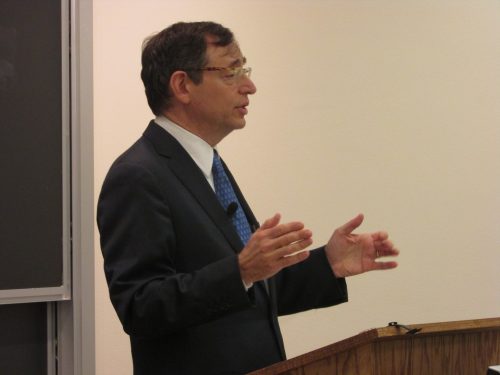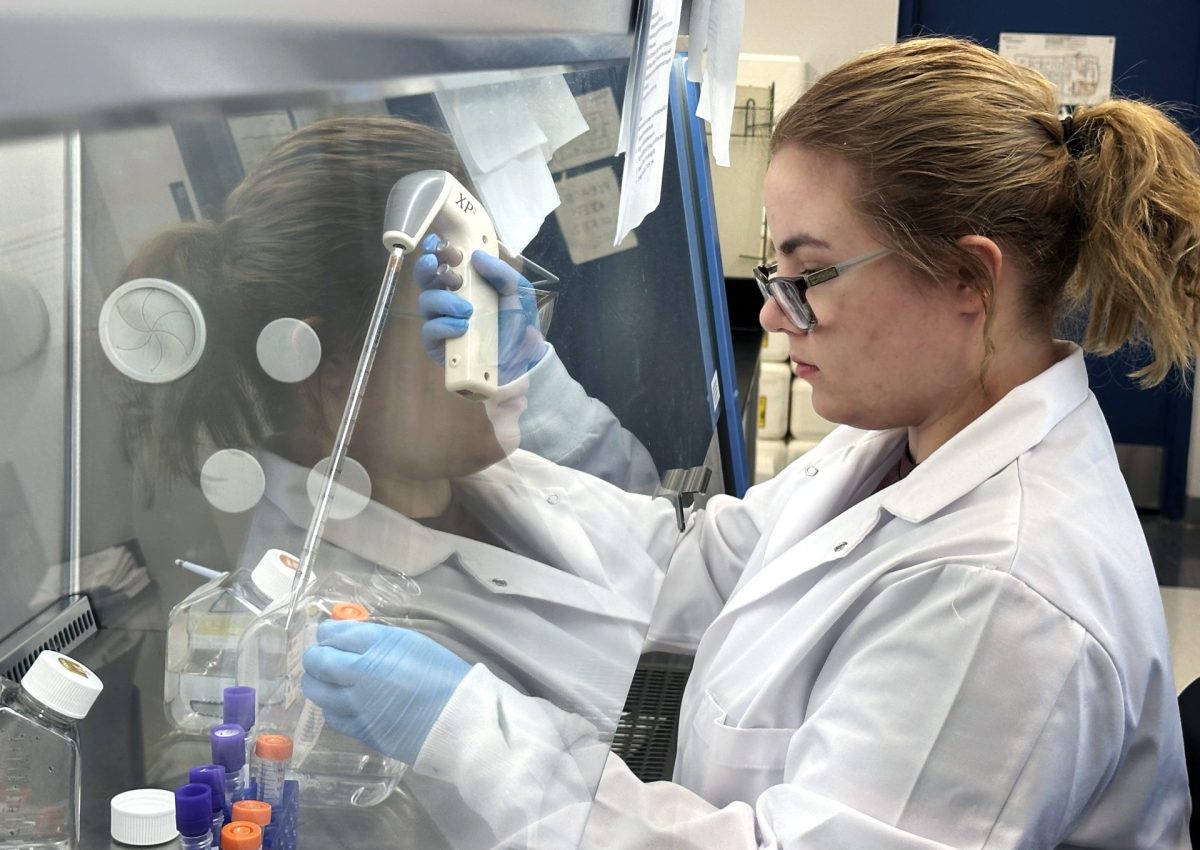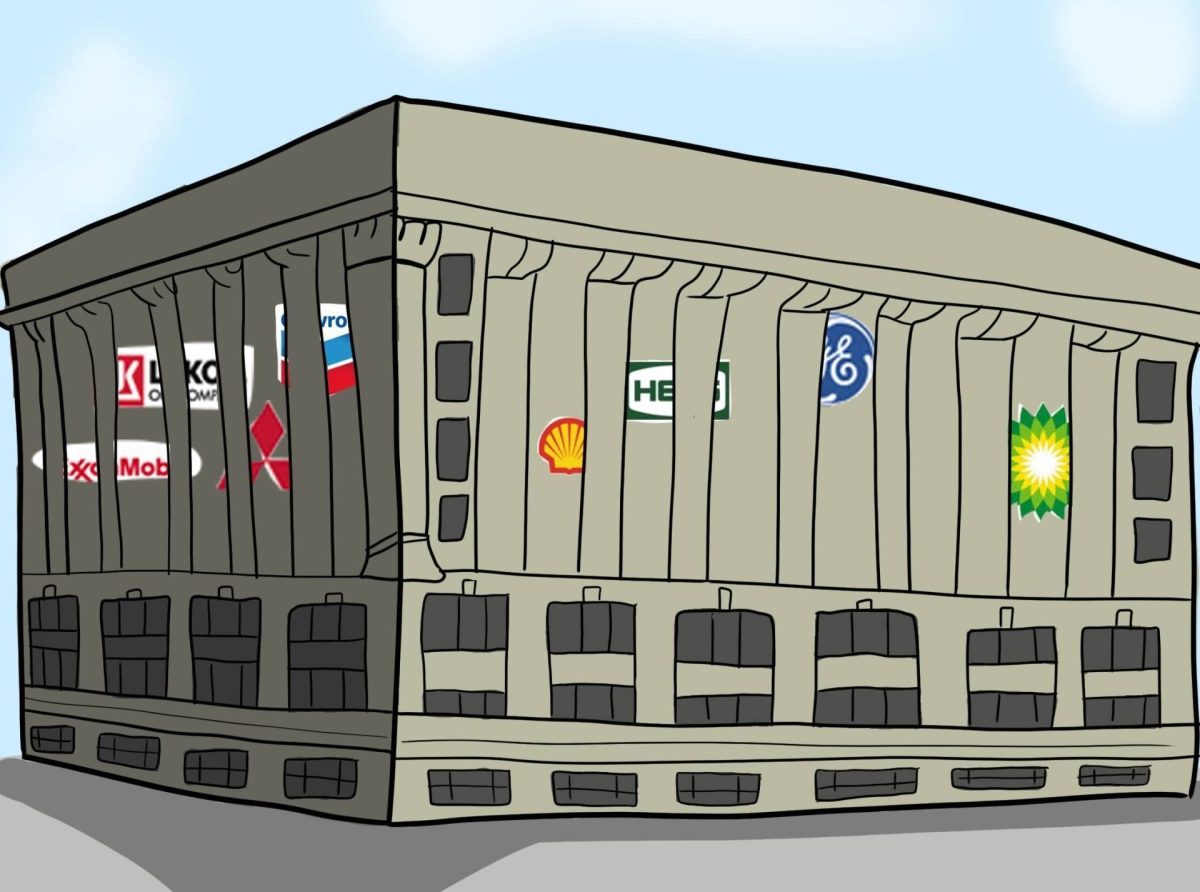In partnership with the Center for Jewish Law and Judaic Studies (JLJS), entrepreneur, author and writer Seth Siegel spoke with various professors, directors and students at the College of Law on Feb. 14.
His recent publishing, “Let There Be Water,” as well as other stories on innovative ways Israel reserves water was the theme of discussion followed by a Q&A session.
The Center for Jewish Law and Judaic Studies (JLJS)contributes heavily to the Chicago community, specifically but not exclusively to those representing fundamental Jewish values. At the start of the program, director and professor Steven Resnicoff introduced Siegel and briefed about the accomplishments of JLJS, which include conferences addressing formal ethical regulation of lawyers and doctors and self-identification as a Jew as an attorney or scholar.
“Let There Be Water” was inspired by Siegel’s desire to spread awareness of water shortages that he believes to be a bigger problem than many realize. Research and statistics suggest that by 2025, water scarcity will be a prominent issue.
“We’re not just talking those far away places,” Siegel said. “The guess is that 40 of our 50 U.S. states will also face water scarcity.”
Reasons for the shortage include: climate change increasing and dietary concerns.

Diet, Siegel observed, plays such a major role because it is directly related to how agricultural practices arise.
“A pound of beef takes 17 times more water to create than a pound of corn, so just imagine as somebody goes from having an exclusively grain-based diet to an occasional Big Mac or something like that then all of a sudden, you need enormously more amounts of water to produce the agriculture to feed those people,” Siegal said.
Using similar circumstances for population, affluence and drastic climate changes depicts the massive consumption rate of natural resources.
Furthering his research on the subject, Siegel discovered a pattern between the solutions to the majority of the issues and Israel’s system of agriculture and economics, specifically related to preserving water and its quality. The country is a world-leader in water recycling (also known as reclamation) and making usage of the high-sodium content in some bodies of water for farming purposes. For more than 50 years, Israel’s water technology exports soared, reaching $2.2 billion in 2013.
Before acting the country’s issue of water scarcity, Israel measured its water supply and recorded data to find out how it was being used, Siegel said. Israel inflated the price of water as an economic mechanism; the more water cost, the less citizens were willing to use it. Nearly 68 percent of Israel’s water is dedicated to farming.
In America and other countries, water is easily accessible and oftentimes overly consumed. When a toilet is flushed, for example, the water isn’t recycled and typically goes to a water post that poses as an environmental nuisance.
According to waterinfo.org, the average American household consumes 127,400 gallons of water that only costs $350. In Guatemala City, the same amount of water costs $1700. An estimate 10,000 gallons of water are wasted a year per household (the equivalent amount to wash 270 loads of laundry).
Israel developed a system of using sewage and water containing high amounts of salt in unconventional yet profitable and resourceful ways. A benefit of water with high sodium (also known as “marginal water” found deeper within the earth’s surface) is that plants combat the high doses with more glucose. As a result, fruit grown on the plains of Israel have been noted to be sweeter and richer in taste. The soil also becomes richer in minerals, which is most desirable to farmers and crops.
“Israel has demonstrated clearly self-improvement,” he said. “It can be a source of conflict resolution, it can be a source of engagement, it can be a source of coordination and cooperation and if not peace, then the footsteps on the way to peace.”
The remainder of the discussion was open for questions from the audience. Siegel encouraged people to travel to Israel for educational reasons and to get an environmentalist’s perspective of conservation of natural resources.







